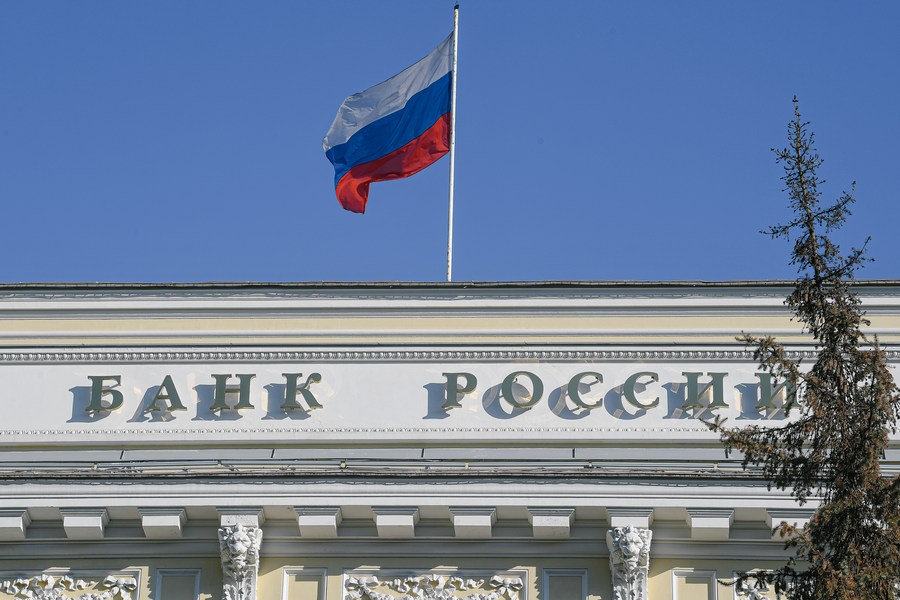Gần 300 tỉ USD dự trữ ngoại hối của Nga đã bị các nước phương Tây phong tỏa kể từ tháng 3.2022. EU đang tìm cách hợp pháp hóa việc khai thác lợi nhuận từ số tiền này, nhưng Mátxcơva cảnh báo, bất kỳ động thái nào như vậy sẽ cấu thành hành vi trộm cắp.
Các quan chức Nga nhiều lần nói rằng việc tịch thu tài sản nhà nước và tư nhân là hành động đi ngược lại mọi nguyên tắc của thị trường tự do.
RT đưa tin, Bộ trưởng Tài chính Nga Anton Siluanov đã cảnh báo về “một phản ứng hoàn toàn đối xứng”, lưu ý rằng có “đủ tài sản” trong các tài khoản “loại C” - các tài khoản ngân hàng chuyên dùng bằng đồng rúp. Một trong số này bao gồm nghĩa vụ dự trữ cổ tức đối với các đối tác từ các quốc gia “không thân thiện” (những quốc gia ủng hộ các biện pháp trừng phạt).
Bộ trưởng Siluanov nói thêm, tất cả những tài sản đó đều bị phong tỏa, “số lượng không hề nhỏ” và số tiền thu được từ việc sử dụng chúng là rất đáng kể.
Người phát ngôn Điện Kremlin Dmitry Peskov cũng đồng tình với Bộ trưởng Tài chính, tuyên bố Nga sẽ thách thức bất kỳ hành động tịch thu nào trước tòa án.
Theo ông Peskov, việc các nước phương Tây tịch thu tài sản của Nga là “bất hợp pháp” và “cực kỳ nguy hiểm” đối với hệ thống tài chính toàn cầu và nền kinh tế thế giới.
Theo ước tính chính thức, dự trữ của ngân hàng trung ương Nga đã giảm 8,4% vào năm 2022 sau khi tài sản bị phong tỏa ở các nước G7, EU và Australia.
Đáng chú ý, 210 tỉ euro (232 tỉ USD) dự trữ của Nga được cho là đang nằm ở EU. Trong số này, 191 tỉ euro được cho là ở Bỉ, 19 tỉ euro ở Pháp và 7,8 tỉ euro ở Thụy Sĩ - nước không phải thành viên EU.
Mỹ được cho là đã phong tỏa khoảng 5 tỉ USD tài sản nhà nước của Nga.

EU đặt mục tiêu huy động 15 tỉ euro cho Ukraina từ số tiền lãi từ tài sản bị đóng băng của Nga, tùy thuộc vào sự đồng thuận của tất cả các quốc gia thành viên.
Vào tháng 7, cơ quan thanh toán bù trừ Euroclear của EU tiết lộ rằng, trong số 2,28 tỉ euro kiếm được trong nửa đầu năm 2023, hơn 1,7 tỉ euro là lợi nhuận từ các tài sản bị đóng băng của Nga.
Euroclear được cho là nắm giữ số tiền trị giá 196,6 tỉ euro của Nga, phần lớn trong số đó thuộc sở hữu của ngân hàng trung ương Nga.
Khoảng 5 triệu nhà đầu tư tư nhân Nga bị phong tỏa tài khoản trong các tổ chức tài chính quốc tế. Giá trị chứng khoán bị phong tỏa trong danh mục đầu tư của các nhà đầu tư tư nhân lên tới 3,4 tỉ USD tính đến tháng 7 năm ngoái.
Các quốc gia phương Tây đã cân nhắc trong nhiều tháng về cách tịch thu số tiền này và quyên góp cho Ukraina, bất chấp nhiều cảnh báo rằng các biện pháp như vậy có thể gây nguy hiểm cho uy tín của hệ thống tài chính và tiền tệ phương Tây.
Các nhà hoạch định chính sách của EU đã thảo luận về việc áp dụng thuế bất ngờ đối với lợi nhuận được tạo ra từ các quỹ cố định, ước tính sẽ tạo ra lợi nhuận khoảng 3 tỉ euro.
Theo Reuters, các nhà lãnh đạo G7 dự kiến sẽ thảo luận về kế hoạch cho phép tịch thu tài sản bị phong tỏa của Nga khi họ gặp nhau vào tháng 2.
Trong khi đó, một số nước thành viên EU phản đối ý tưởng sử dụng nguồn vốn bị đóng băng của Nga. Theo một bài báo gần đây của Financial Times, Pháp, Đức và Italy vẫn “cực kỳ thận trọng” về ý tưởng này. Một số quan chức EU “lo ngại có thể bị Nga trả đũa” nếu tiền của nước này bị tịch thu.
Ngân hàng Trung ương châu Âu (ECB) cũng đã cảnh báo chống lại biện pháp này, nhấn mạnh rằng việc sử dụng tiền bị đóng băng có thể gây nguy hiểm cho danh tiếng của đồng euro.








